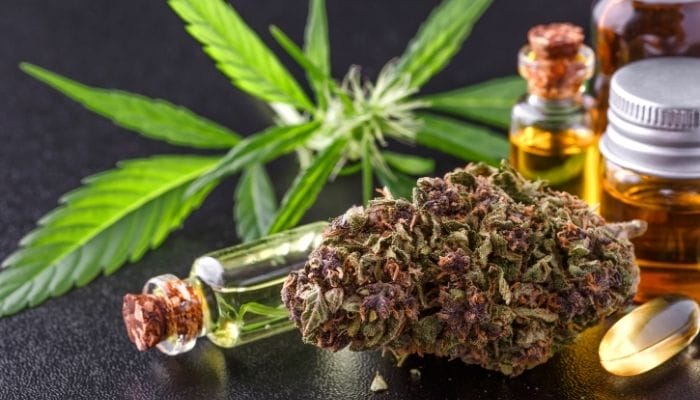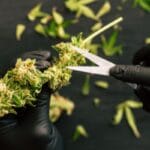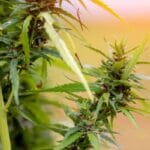As the numerous benefits of CBD become more well known, an ever-growing amount of CBD products continue to emerge on the market. When choosing which product to use, you should understand the various types of CBD concentrates that exist. Two of the most popular options include CBD isolate and full-spectrum CBD oil. The choice between these products will largely depend on the benefits you want to receive from a CBD product. Below, we’ll help you better understand the difference between CBD isolate and full-spectrum CBD so that you can make the best decision.
The Potency of the Product
CBD isolate refers to a pure, highly concentrated form of CBD. This product consists exclusively of CBD and doesn’t contain any other compounds from the hemp plant. As such, it typically contains very low levels of tetrahydrocannabinol (THC).
Unlike CBD isolate, full-spectrum CBD doesn’t exclusively contain CBD. Instead, it may also contain other compounds from the hemp plant, such as cannabidiol, terpenes, flavonoids, vitamins, minerals, and THC.
The Entourage Effect
One of the differences between CBD isolate and full-spectrum CBD is the effect that they have on the user. Using full-spectrum CBD oil will often result in what’s known as the entourage effect. This effect refers to the fact that combining multiple cannabis plant compounds will often have a stronger impact than a single cannabinoid would on its own. As such, the health benefits of CBD may be more prominent when using a full-spectrum CBD product over a CBD isolate.
The Production Process
As previously stated, CBD isolate doesn’t include other compounds from the hemp plant and typically consists of 99 percent pure CBD. To reach such a high level of purity, CBD isolate must go through extra processing following the extraction process. People often implement the process of high-pressure liquid chromatography to separate all other compounds from the final isolate product.







